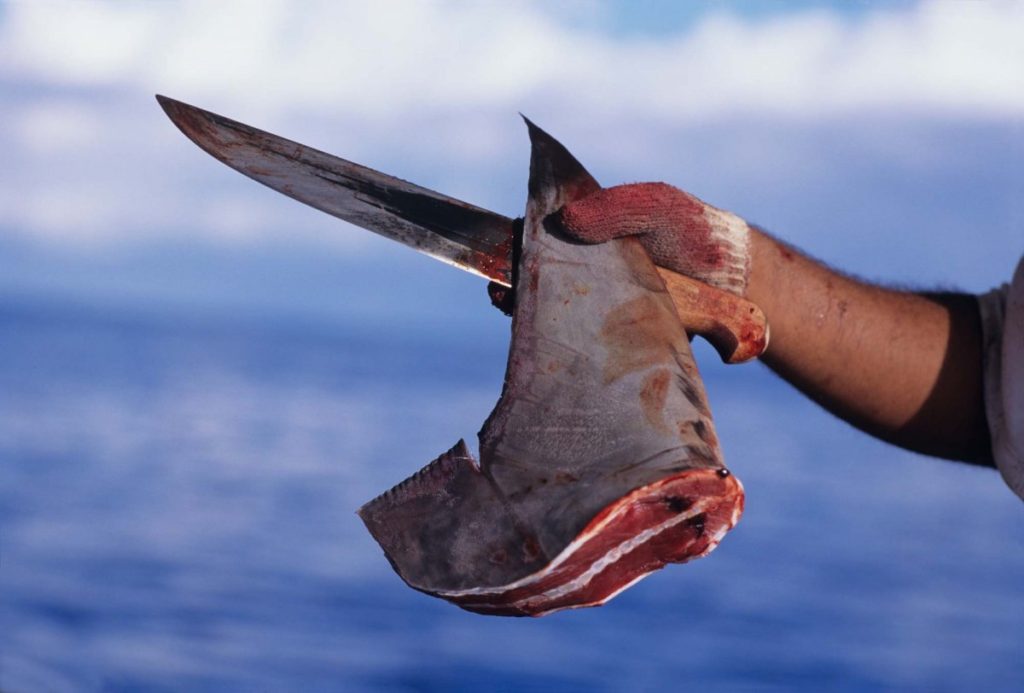We’ve all heard of southern hospitality – sweet tea, hushpuppies, and hugs. If you’re a shark swimming in the seas near Florida, Louisianna, or Georgia, however, you will be received with anything but a warm welcome. You’ll most likely fall victim to fisherman looking to profit from the sale of your find. In recent years we have seen a return of the shark fin trade in the United States, and it’s been discovered that the bulk of fins are being funneled to Hong Kong through ports in Savannah, Georgia.
In the cruel shark finning industry, sharks are fished out of the ocean and, while they are still struggling for breath on the ship’s deck, their fins are hacked off, whereupon the live animals are then dumped back into the water to bleed out. These fins are then sold to restaurants in Asia where they are used to make shark fin soup, a much-coveted delicacy.
The United States banned the practice of shark finning in 2000 with the Shark Finning Prohibition Act, but loopholes in the ban left sharks vulnerable. In an attempt to increase legal protection for sharks, the Shark Conservation Act was passed in 2010, and individual states began to implement bans on the sale and trade of fins. While these legislative efforts have been successful in reducing the overall illegal sale of shark fins, the trade has not yet been banned in Savannah, and it is, sadly, booming.

In 2013, the shark fin trade was almost non-existent in the region, but by 2015 it was estimated that 25,765 pounds of shark fins were shipped to Hong Kong – that equates to right around $1.2 million. According to Savannah Now, last year the numbers were similarly staggering; around 19,171 pounds of shark fins had been sent to Hong Kong by the beginning of November. There are no commercial shark fisheries in Savannah, but experts believe the fins are coming in from Louisiana and Florida. Currently, the U.S. provides around three percent of the global supply of shark fins and this needs to stop.
Not only is shark finning incredibly cruel – it’s threatening global marine ecosystems. Sharks are apex predators and as such, they play a uniquely important role in the maintenance of marine flora and fauna. Sharks keep populations of smaller fish in check. Without them, these fish would eat all of the plants on the ocean floor and throw the ecosystem completely out of wack – potentially even hindering the ocean’s ability to mitigate climate change. We need the oceans to survive, but our appetite for shark fin soup has driven its caretakers to the brink of extinction. Around 73 million sharks are slaughtered for their fins each year and even more that are killed as a result of careless fishing practices.
But here are ways that we can fight back against the shark fin trade and help to save sharks from extinction. Oceana is championing the Shark Fin Trade Elimination Act that would begin a global initiative to protect sharks and put an end to the shark fin trade. You can also protect sharks by taking fish off of your plate. All too often, these creatures are caught in fishing nets and become the victims of collateral damage.
via OneGreenPlanet



